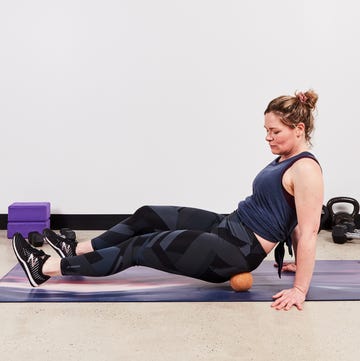The general estimation is that the average person burns about 100 calories per mile of running. But sometimes, you don’t want to just go by the general estimation. Sure, you could wear a running watch to track your calorie burn, but maybe you’re a purist or maybe you’re working on running mindfully. (Not to mention, research from Stanford University and the Swedish School of Sport and Health Sciences found calorie feedback on fitness trackers like the Apple Watch of Fitbit Surge are off by an average of 27 percent.)
→ You love running. We love running. Come join us with Runner’s World+!
The basic calorie calculator below will estimate how many calories you use up while running, which you can add to your daily calories burned (we have a calculator for that, too) to get your total calorie expenditure.
Calories burned calculator
How to safely use the calorie calculator
Knowing how many calories you burned on a run isn’t required. Calorie-counting can foster a complicated—and sometimes unhealthy—relationship with food and exercise. When you go for a run, you know you’re doing your part to keep your body healthy—regardless of calories.
With that said, knowing this information can be helpful in your training—especially if you’re working toward a weight loss goal or trying to figure out how best to fuel for a race. Here’s everything you need to know about using a calories calculator.
What is a calorie?
Calories are the fuel that keeps our bodies going—one calorie equals one unit of energy. And our bodies need that energy for everything from breathing to racing toward a finish line. Calories (of course) come from food: There are nine calories in every gram of fat and four calories in every gram of protein or carbohydrate. The calories that our bodies don’t end up using are stored in fat cells, which is our way of conserving energy for when we need it. If you consume more energy than you burn, that’s when you start to gain weight—if you flip the equation and burn more than you consume (through exercise), you’ll likely lose weight.
How many calories do I need?
Everyone requires a different amount of calories per day. The easiest way to figure out what you need is to calculate your Basal Metabolic Rate (BMR). That’s the minimum number of calories your body needs to function, which can start at 1,800 calories per day for adult women and 2,400 calories per day for adult men. But that’s not counting the calories you need to fuel any activity, like running, which puts extra caloric demands on your body—and the recovery that comes after.
Should I watch my calorie intake?
Because no two runners are alike, there’s no standard calorie burn you should be striving for during running.
That’s because different body masses, respiratory quotients, and fast-twitch muscle fibers—all of which have nothing to do with calories—all play a role in energy expenditure. But because excess calories equal excess weight, which can lead to a whole host of health issues, including sleep problems and heart disease, it’s still important to have a general idea of what you’re consuming and what you’re burning.
Can I still eat good food while watching calories?
It’s important to remember that no food is inherently “good” or “bad.” Labeling food like this can turn eating into a moral issue and also tends to drive cravings, as we’ve previously reported. With that said, the most important thing to remember is that not all calories are created equal. You can have 100 calories of potato chips and 100 calories of cucumber dipped in hummus, and they’re each only going to add 100 calories to your daily intake.
But the cucumber and hummus snack is going to give you a lot more bang for your buck. Consuming low-cal fruits and veggies (and whole grains!) means you’ll be able to eat more of them, and you’ll get more nutrients and vitamins that will help keep you in peak condition. Plus, you’ll cut out processed foods and added sugars, which have been linked to health issues such as type 2 diabetes, heart disease, and certain cancers.
If your goal is weight loss, though, you don’t want to simply restrict calories; rather, be smart and focus on getting the most nutritional value out of the calories you do consume.
And most importantly: Try not to obsess about calories. While it’s okay to be aware of calories, being fixated on every last one isn’t healthy and can take the fun out of eating and running.
We’ve found that some ad blocker software interferes with the Calories Burned Running Calculator’s functionality. If you don’t get a response after clicking the “calculate” button, try disabling your ad blocker, refreshing the page, and trying again.













